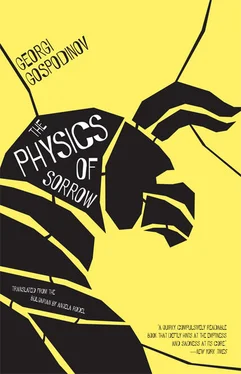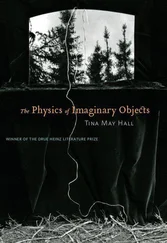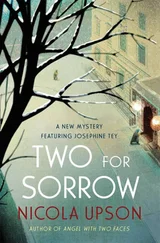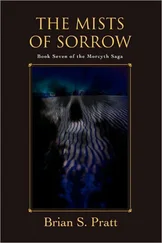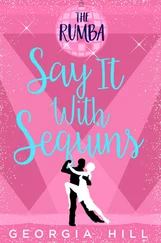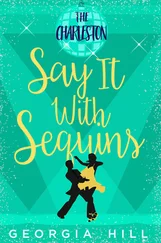THE SADDEST PLACE IN THE WORLD
To the Angel of Inexplicable Nighttime Noises,
who watches over those crying in the bathroom,
those cutting themselves in the kitchen
and those smoking on balconies at three in the morning .
Revoltingly lonely. That’s how I had been feeling over the last few years, that’s the most precise definition. A while back I saw it written in black marker on a telephone booth: “I love people and that makes me revoltingly lonely.” I added it to the collection of persistent phrases that I run through my head during fits of. revolting loneliness.
I went to take a walk around the neighborhood during autumn’s late, joyless afternoon. The scent of rot. The scent of overripe, falling plums, inebriating, with a whiff of mash. The brandy that will never be. Scattered watermelon rind, already drained by an army of wasps, then sucked dry by a procession of ants. I was breathing it in, no, I was swilling it down, with the doggedness of a man who has decided to get sloshed in some grimy neighborhood dive.
I was looking at the beat-up, rusting, wrought-iron casings of the glassed-in balconies. The poor man’s pathetic trick for enclosing your only balcony, putting up windows and curtains, turning it into an aquarium, reclaiming a few more square feet, adding another room to your panel-block apartment, putting your stove, hot plate and pepper roaster out there, planting dill, parsley, onion, and even a tomato plant in square plastic pots, turning it into a kitchen and a winter garden all at once. Frying peppers in the evening in that shop window onto your miserable life or smoking in your wife-beater in the inexplicable sorrow of the wee hours.
I cut through a schoolyard, with battered basketball backboards, their hoops missing, overgrown with weeds. Grass was sprouting up through the cracked asphalt where a few kids were fervently kicking around a ball, dude, you’re a fucking faggot, one of the kids, not more than ten, yelled, then the “faggot” told him to go fuck himself and the game continued. It wasn’t so much the words themselves, but more the doctoring of the voices, the rasping, the straining of throats to produce something growling and threatening that made me get the hell out of there. Smashed water bottles, a scrap of newspaper that read: “Sozopol has become a second Jerusalem. Miracle-working relics of St. John the Baptist were discovered there yesterday: three knucklebones from the right hand, a heel, and a molar belonging to Christ’s cousin. ” The pseudo-mystical kitsch of Bulgaria’s backwaters.
It has turned into a ghetto. Or maybe it always was. Nothing has changed — except for the creeping rust everywhere; the panel-block apartments are thirty years older, irreparable. Back in the day, everybody was always saying: it’s too late for us, but let’s hope that at least the kids will live a different life. The mantra of late socialism. I now realize that it was my turn to utter that same line.
The boxes have to contain a little of everything. Most of all something of those whispered, buried, hidden things. Something of that which didn’t make it into the shot, which didn’t last, but vanished, dried up like an autumn leaf, which started stinking like fish on a hot afternoon, went sour like milk, wilted like a pissed-on geranium, rotted like a pear.
I passed by a power substation. They needed to be recorded, photographed, documented: the rusty sign reading “Warning: High Voltage” and the death notices with pictures of the deceased hung all around it. As if all those people from the death notices had illegally rummaged around in the power substation (of life?) and the electric shock had swept them away. Death notices and want ads. From these want ads, pasted up on the crumbling plaster, you could reconstruct the entire unwritten history of the last twenty years. Of supply and demand. I took out my notebook and started copying them down.
A company is looking for elite dancers to work abroad. Young women needed to work for Italian families. Apartment for rent for two female students, non-smokers. Learn English in three weeks. I break curses, cast spells to improve your love and professional life. A cure for hemorrhoids and hair loss. Lost dog. We buy hair.
What’s up, douchebag, someone clapped me on the shoulder. The phrase dated back twenty years ago, the gesture, too. Let’s put it down in the catalogue of vanished words and gestures, I instantly filed it away. I turned around, a vaguely familiar face, most likely a schoolmate: Ooh, Señor Schlong. My own answer surprised me, I had never used that form of address, but now the situation somehow naturally called for it. From that point on, the conversation shifted into the genre of “two old acquaintances chat, while asking themselves ‘who the hell is this guy?’” A rhetoric of flanking maneuvers. A feast of general and diluted speech. Skillful avoidance of the minefields of concrete facts and names. You can’t think of his name, you have no idea what he does for a living, you don’t even know whether he’s mistaken you for someone else, thus causing you to rummage around in the bottomed-out sack of your memory in vain. At that moment the omnipresent question “How are you?” comes to the rescue. And everything falls into place — the army of adages about the unrelenting passage of time, the kids are growing up, we’re getting older, you haven’t changed a bit, you’re exactly the same (who the hell are you, for Christ’s sake), well, that’s the way it goes, isn’t it, okay, I’ve gotta run, okay, let’s get together some time.
I note this encounter as well (everything is important). Saying farewell to someone whose name you can’t even remember, someone you’ll write down as Señor X, that eternal X of the unknown perpetrator. No matter how hard you wrack your brain all day, you won’t come up with his real name, but paradoxically, this is precisely what keeps him alive in your mind for some time. We cannot run away from the ones we’ve forgotten.
Farewell, Señor X, farewell to all those I’ve forgotten, and to all those who have forgotten me. May your memory live on forever.
DESCRIPTION OF A PHOBIA (SIDE CORRIDOR)
A friend of mine was terrified by dolls’ gazes. She would fall into an actual stupor if she ever met their glassy eyes. They certainly did have creepy stares, those dolls from back in the day. It turn out that this fear has been described and has a name, it’s called pediophobia.
My fear is even more terrible, because the threat can be anywhere. I’ve never found it in any nomenclature of phobias, so that’s why I’ll duly add its description here. Let this be my humble scientific contribution to the endless List of Fears.
I have a phobia of a certain question. A nightmarish question that can literally jump out at you from around the corner, hidden in the toothless mouth of the neighbor lady or mumbled by the clerk at the newspaper stand. Every telephone call is charged with this question. Yes, it most often lurks in telephone receivers:
How are you?
I stopped going out, stopped answering my phone, I started shopping at different stores so as to not fall into the trivial acquaintances of everyday life. I wracked my brain trying to hammer out defensive responses. I needed a new Shield of Achilles against bullshit. How to come up with an answer that doesn’t multiply the banality, that doesn’t get bogged down in clichés? An answer that doesn’t force you to use ready-made phrases, an answer that doesn’t lie, but which also doesn’t reveal things you’d rather not reveal. An answer that does not predispose you to entanglement in a long and pointless conversation.
What spurious tradition of etiquette has given rise to it, how has it slipped through the centuries, that hypocritical question. “How are you?”—that is the question. (The sublime “To be or not to be” has been replaced by that pitiful inquiry, now there’s proof positive of degradation.)
Читать дальше
